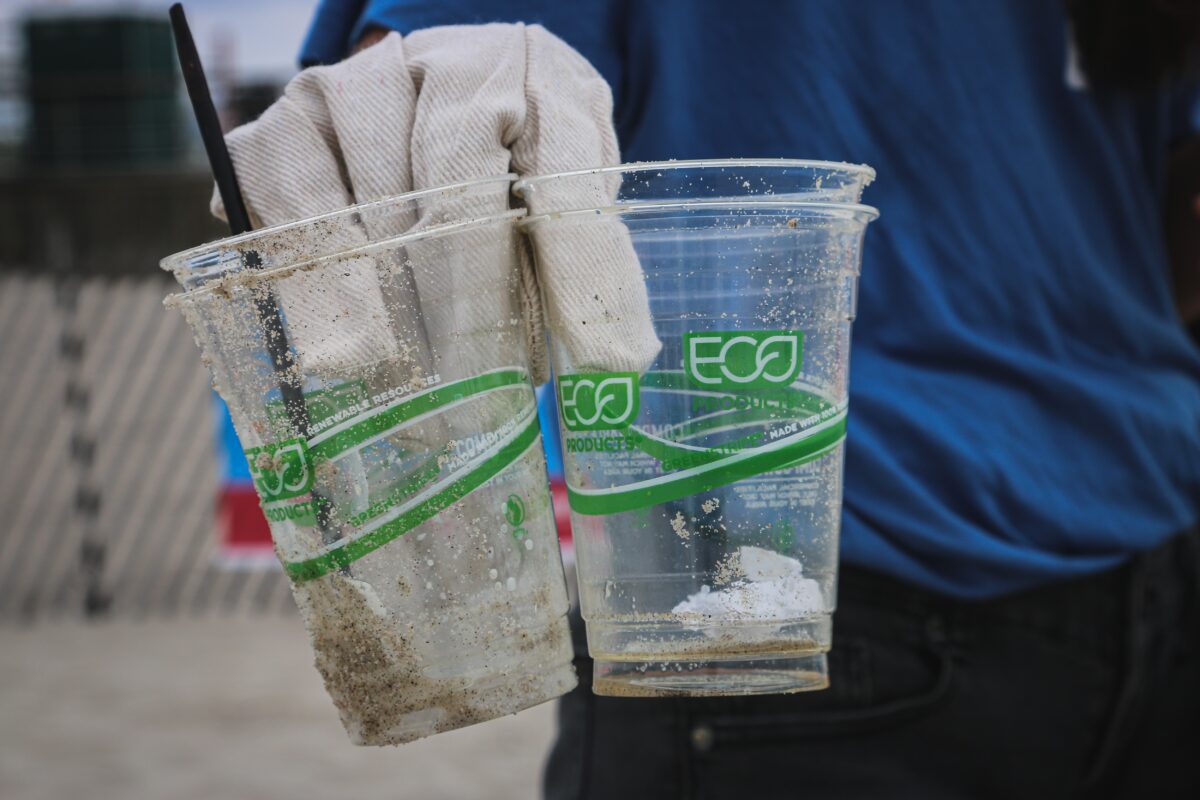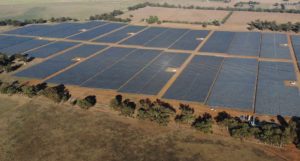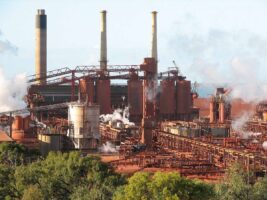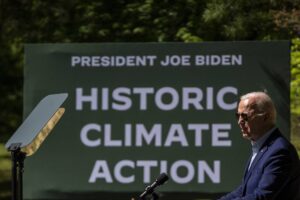A new report has concluded that 24 of the world’s richest companies are hiding climate inaction behind a veil of greenwashing, while they rake in a combined revenue of over $4.5 trillion and contribute 4% of global emissions.
The 2023 edition of the Corporate Climate Responsibility Monitor – a joint initiative from the NewClimate Institute and Carbon Market Watch (CMW) – alleges that the 24 major companies it assessed in the report have failed to act to achieve significant emissions reductions.
Their failure came despite their attempts to position themselves as climate leaders through association with the UN-backed ‘Race to Zero’ campaign.
The report assesses each company against its net-zero commitments, evaluating the integrity and transparency of their efforts. Those companies fall into seven main sectors: cars, retail fashion, supermarkets, food and agriculture, tech and electronics, shipping and aviation, and steel and cement.
Not a single one of the 24 assessed received a ‘high integrity’ score in this year’s CCRM, while only one company – Danish shipping company Maersk – received a ‘reasonable integrity’ score.
Apple, ArcelorMittal, Google, H&M Group, Holcim, Microsoft, Stellantis and Thyssenkrupp all managed to bag a ‘moderate integrity’ score, while the remaining 15 corporations ranged between low and very low.
The report accuses most of the companies of ‘greenwashing’ by committing to the ostensibly ambitious net-zero by 2050 pledge but, behind it, doing limited work to curb their emissions in the long or medium-term.
The 22 corporations that have made a 2030 pledge commit to delivering a median reduction of about 15% in real emissions by that time, far less than would be needed to limit global warming to a safe level. And the outlook is bleak in the long-term, too.
While scientific consensus suggests corporations will need to reduce their emissions by 90-95% by 2050 to help limit warming to acceptable levels, the CCRM’s calculations suggest that the net zero pledges of the 24 companies amount to about real reductions of 36% by mid-century.
Half of the evaluated companies – including Apple, DHL, Google and Microsoft – are reportedly making carbon neutrality claims, though the report finds that these claims only cover 3% of those companies’ emissions.
“At a time when corporations need to come clean about their climate impact and shrink their carbon footprint, many are exploiting vague and misleading ‘net zero’ pledges to greenwash their brand while continuing with business as usual,” says Carbon Market Watch Executive Director Sabine Frank.
The report also takes issue with the fact that most of the corporations plan to use offsets based on forestry and other land use projects.
“Not only do these solutions only store carbon temporarily and are vulnerable to reversals, we would need a second planet Earth to absorb global emissions if everyone decided to offset like these corporations,” says CMW’s Policy Director Sam Van den plas.
The report also finds companies are increasingly looking to a practice known as ‘insetting’, essentially trading offsets within the company’s own value chain rather than on external markets.
“Spurious ‘net zero’ and ‘carbon neutrality’ claims are incredibly damaging,” explains CMW’s Lead on Global Carbon Markets Gilles Dufrasne.
“They give the illusion that corporations are taking serious action to tackle the climate crisis when, in reality, they are sweeping the problem under the carpet and leaving it to others and future generations to clean up their mess.”
Greenwashing is considered a major problem in Australia. In 2021, Greenpeace published a report that found that some of Australia’s highest emitting corporations had set net zero targets without any commitment to actually reducing their combustion and production of fossil fuels – by purely using offsets.
In September 2022, the ACCC announced a crackdown on greenwashing. In response, Climate Council lodged a formal complaint with the ACCC regarding systemic greenwashing by Australia’s major polluters.
In a letter to the ACCC, Climate Council CEO Amanda McKenzie requested that the organisation investigate “systemic” greenwashing in the fossil fuel sector. That letter named ten fossil fuel companies whose collective emissions accounted for just under 40% of all emissions produced in 2020-21.
“I think it’s fair to say that corporate greenwashing is absolutely endemic in Australia,” says Climate Council’s Head of Advocacy Dr Jennifer Rayner.
“Some of our largest companies, and in particular our large fossil fuel companies, are making Net Zero claims that they simply cannot substantiate.”
Many of Australia’s largest fossil fuel producers have adopted corporate net zero policies, but there are still over 100 new coal, oil and gas projects in the pipeline.
Both the International Energy Agency and the International Institute for Sustainable Development have independently established that an immediate end to new coal and gas investments is the only way to reduce global warming to 1.5C by the end of the century.
“And so the idea that you can be claiming net zero while pursuing new projects that are going to pour more fuel on the fire of harmful climate change does not stack up to logic,” says Rayner.
Based on this new report’s findings, CMW has produced a set of internationally applicable recommendations for governments and corporations, including banning the use of misleading terms in an unsubstantiated way – including “carbon neutral”, “CO2 neutral”, “CO2 compensated”, “climate positive” and “net zero” – in company communications and on products.
The report comes as the EU is in the midst of updating its consumer protection legislation to better protect the buyer from greenwashing practices. But CMW and the New Climate Institute say the EU’s current proposals are not significant enough to put paid to greenwashing.
The new recommendations join a major UN report last year that found that governments must hold corporations to account, including making sure that their net zero commitments cover the entire supply chain – including Scope 3 emissions.
“I think there has not been a good understanding from regulators until relatively recently about how widespread this problem is,” Rayner says.
“From our point of view it’s really dangerous if these companies are making commitments to the community and to markets about being net zero, because that means people are continuing to give them social license because they assume they’re on a transition pathway.”
Rayner would like to see far more specific greenwashing laws introduced in Australia. She illustrates the point by way of France, which recently passed legislation to explicitly ban greenwashing in advertising, in response to last year’s UN guidelines.
“At the moment there aren’t really those same specific restrictions in Australia,” she says. “We do have general truth in advertising laws, but they’re not specific to greenwashing.
“I would like to see the recommendations of the UN High Level Expert Group adapted into country specific legislation, because those recommendations are really clear about what is and what isn’t a credible pathway for companies claiming to be net zero.”
Greenwashing doesn’t always go unpunished in Australia. In October last year, Australia’s corporate regulator issued its first penalty for greenwashing, fining Australian company Tlou Energy $53,280 for statements and images contained in two ASX announcements which claimed that the electricity the company produced would be carbon neutral and that a gas-to-power project would be low emissions.
Tlou paid the infringement notices that same month.
ASIC has issued a total of four infringement notices for greenwashing including Tlou’s. The other three infringements went to Vanguard Investments over supposed investment management greenwashing, Diversa over concerns it couldn’t substantiate its Cruelty Free Super (CFS) Superannuation product, and Black Mountain Energy for net zero claims about a gas development project.
ASIC provides a free online information sheet that aims to help companies avoid greenwashing when promoting their products. But the enduring problem with greenwashing is that, by its very nature, it can obscure less-than-ideal behaviour. It’s difficult to monitor the entire economy for every claim made, and the truth that lies beneath it.
“Sustainable finance, including greenwashing, is a strategic priority for ASIC,” said the agency when reached for comment.
“This includes the oversight of sustainability-related disclosure and governance practices of listed companies, managed funds, superannuation funds and green bonds. It also includes taking enforcement action against misconduct, including misleading marketing and greenwashing by entities.”
The agency conducts its own surveillance activities and takes reports from members of the public. In the case of Tlou Energy, ASIC’s own surveillance led to the issuing of the infringement notice last year. But some large companies are patently getting away with it.
“There’s a lot of small companies that are taking genuine steps,” says Rayner. “The problem is, you’ve got these very big companies that account for a very large share of emissions in Australia who are duping the public by claiming to be net zero while pursuing actions that are inconsistent with that.”
So how can consumers recognise greenwashing?
“One of the clearest ways is to interrogate the plans that companies are outlining,” says Rayner. “For example, if they’re relying entirely on credits and carbon offsets then that’s one sign that they are not genuinely transforming their operations.
“Are they changing power sources? Are they switching technology? Are they changing over their fleets?”
But Rayner points out that the onus should not be on the consumer to be vigilant.
“The onus is on companies not to lie to Australians about what they’re doing in the first instance,” she says.
“Consumers shouldn’t have to be passing all these different promises and commitments to decide which companies are doing the right thing.
“That narrative of personal responsibility obfuscates the role that companies have to not lie to Australians.”










